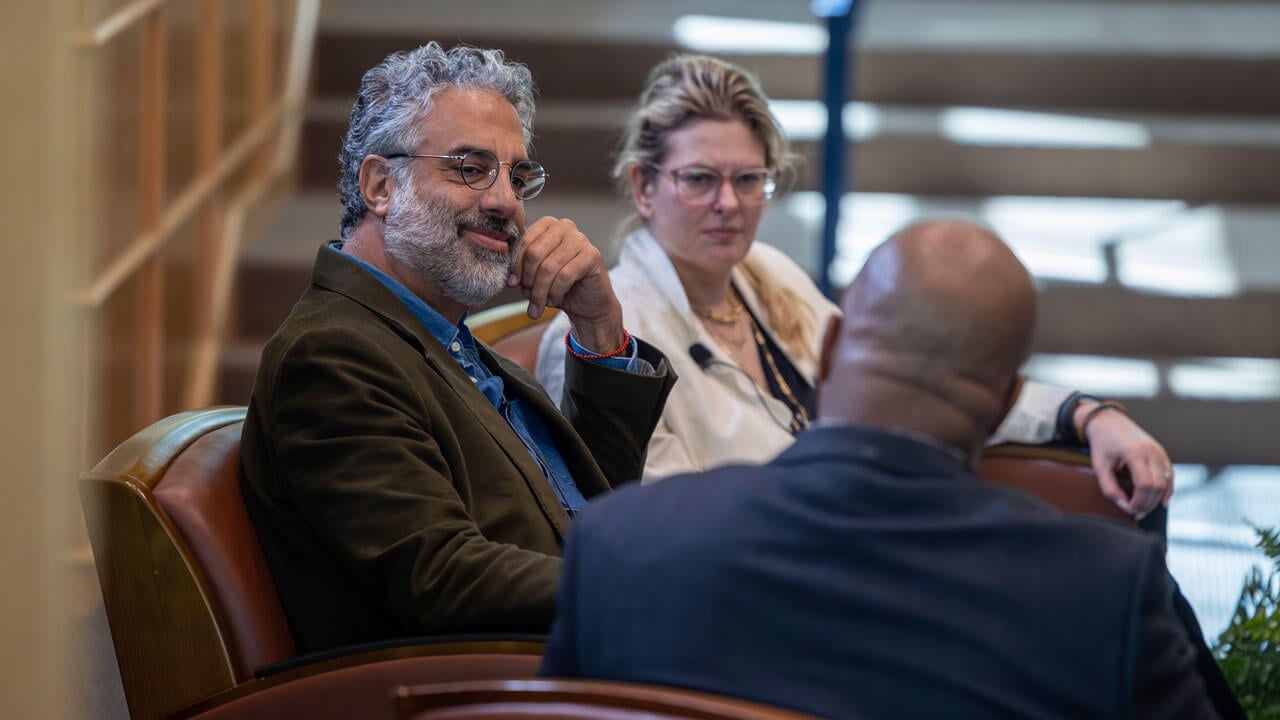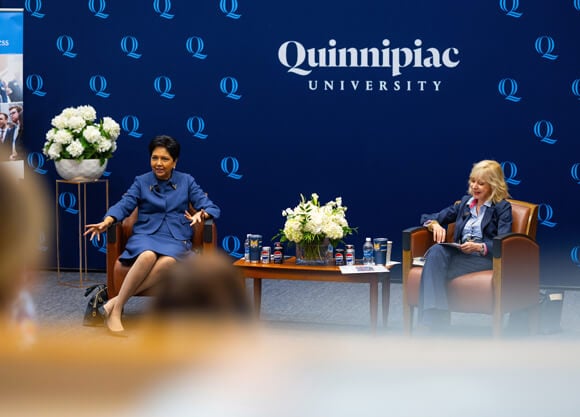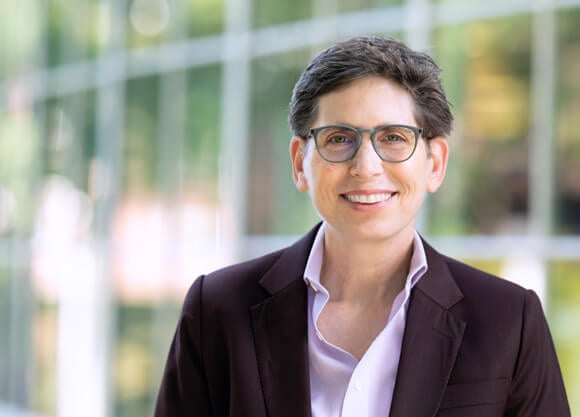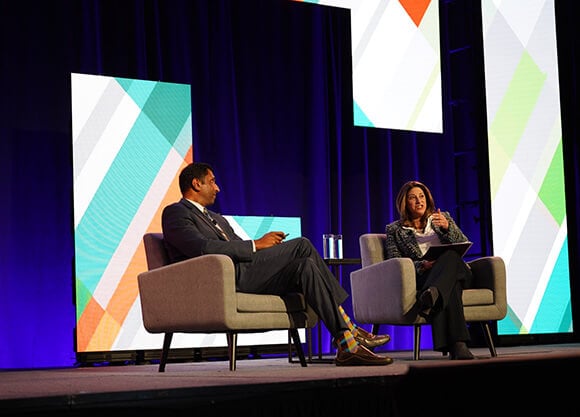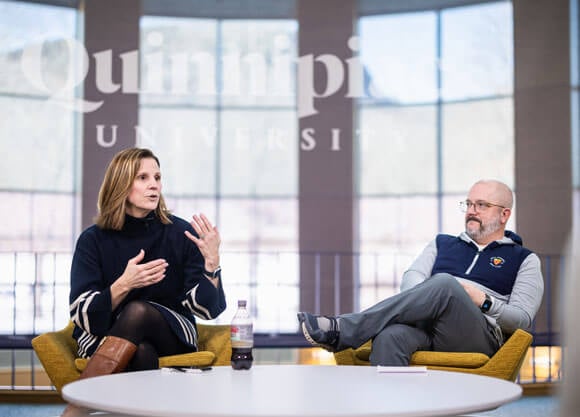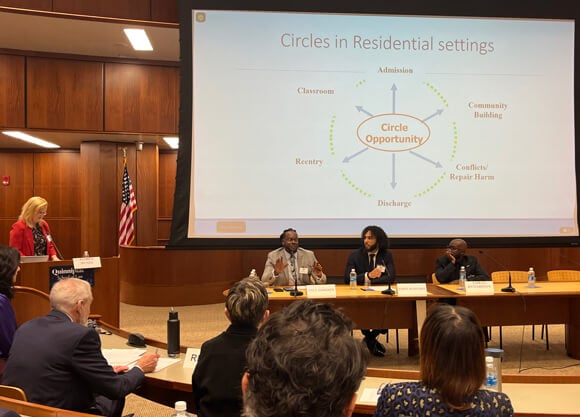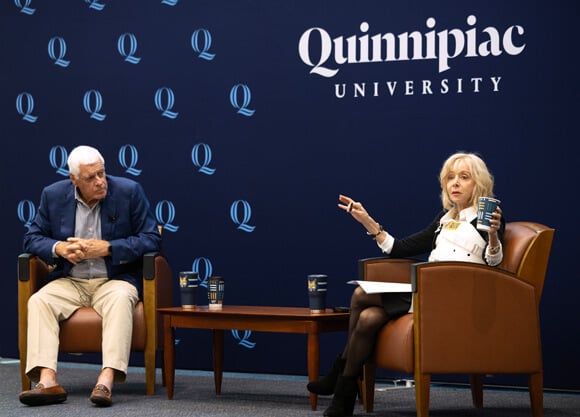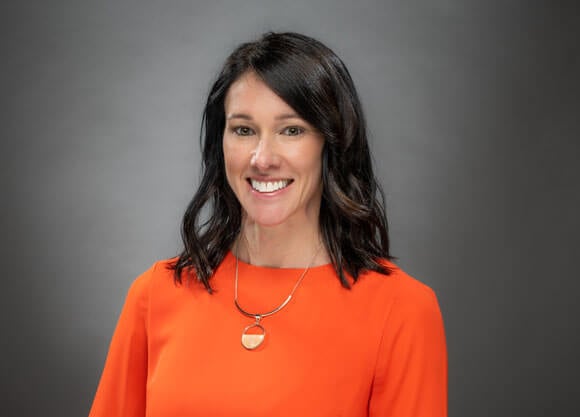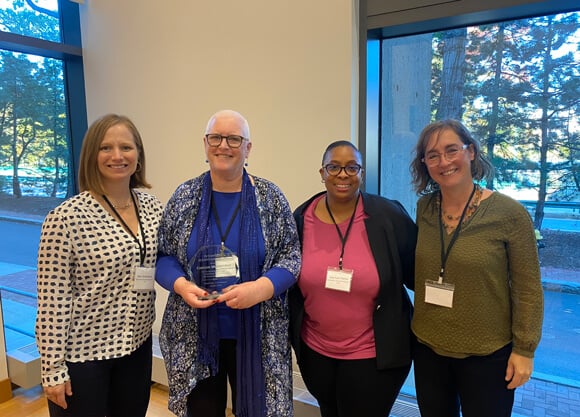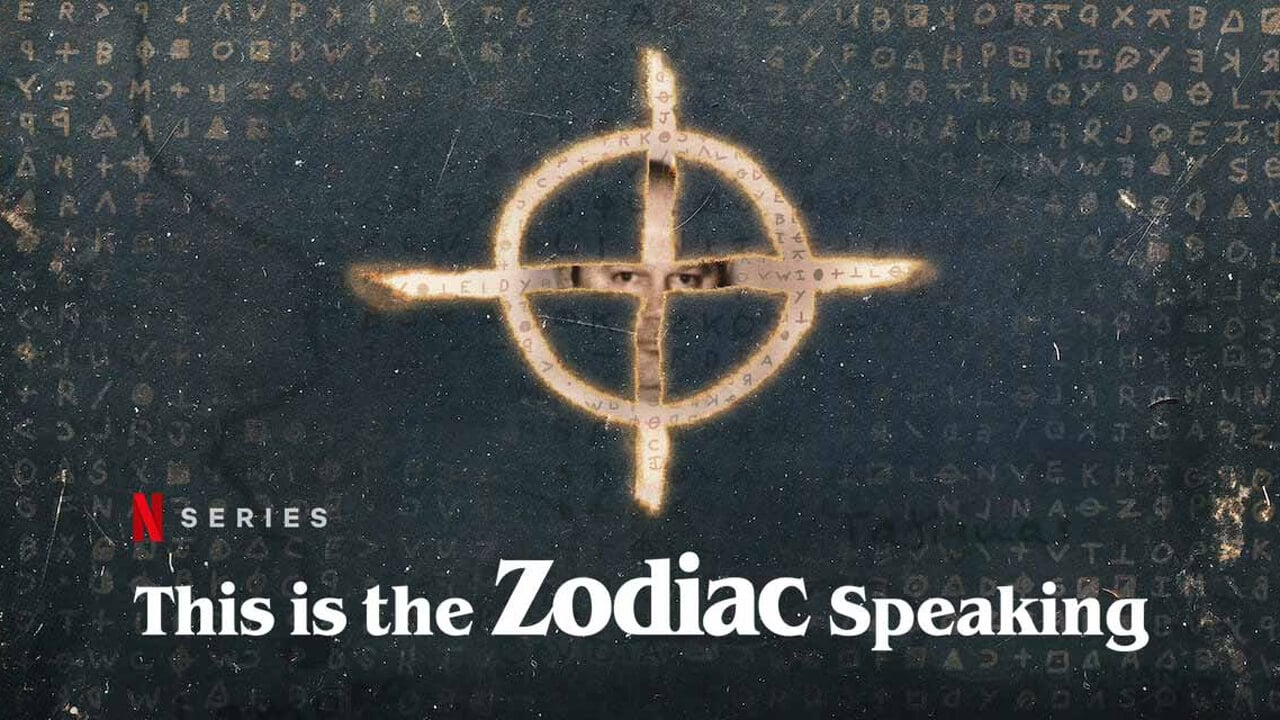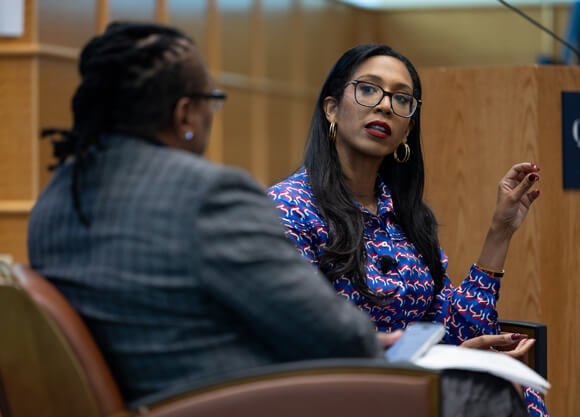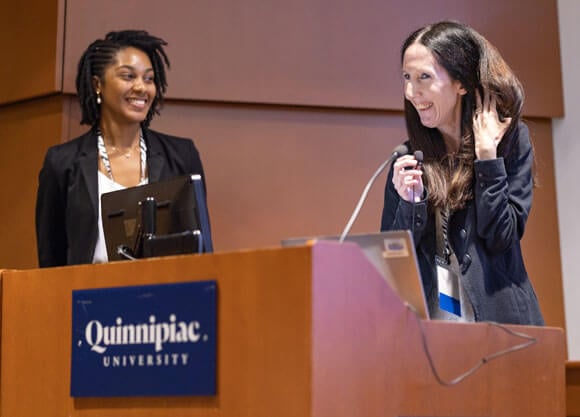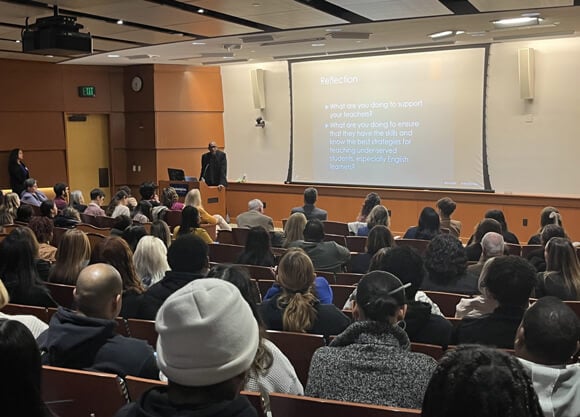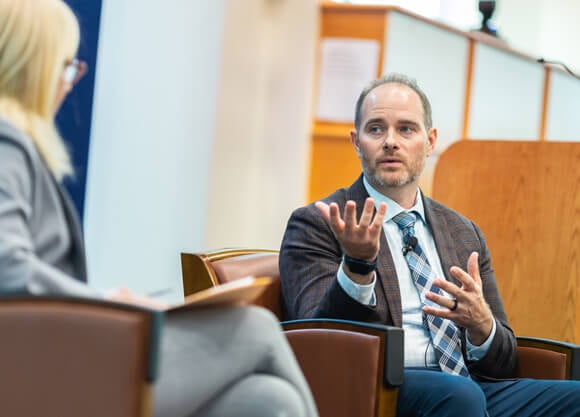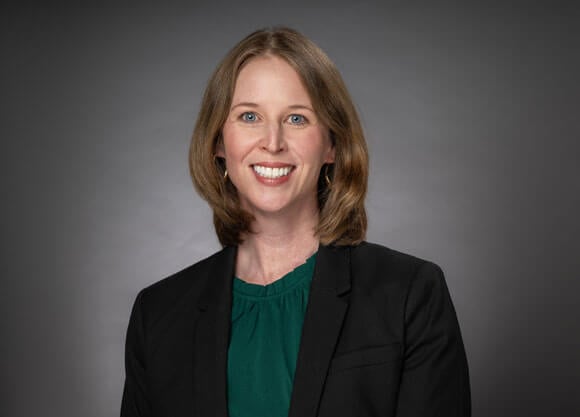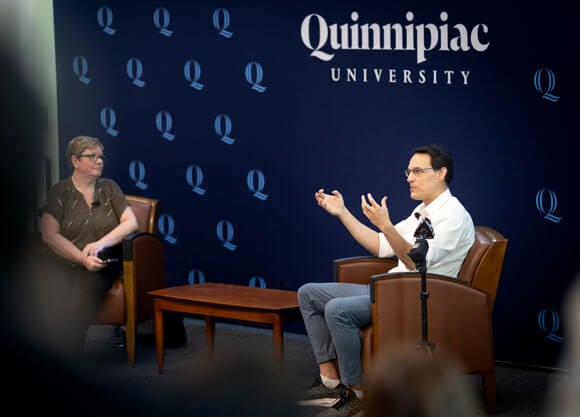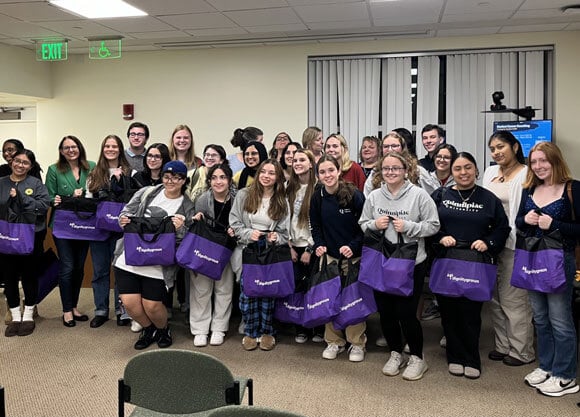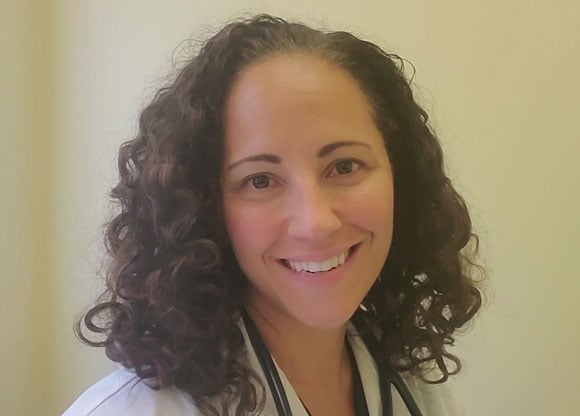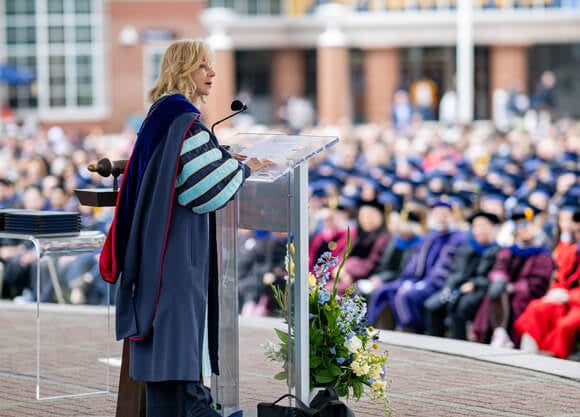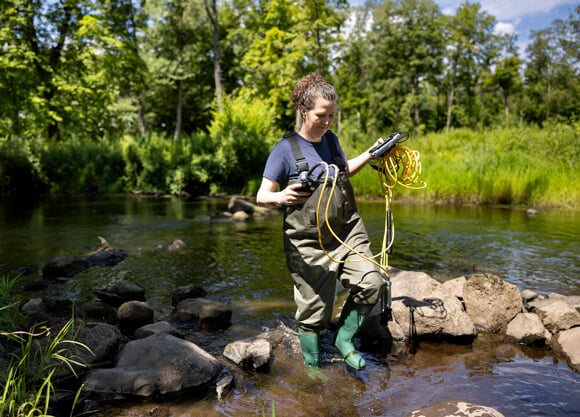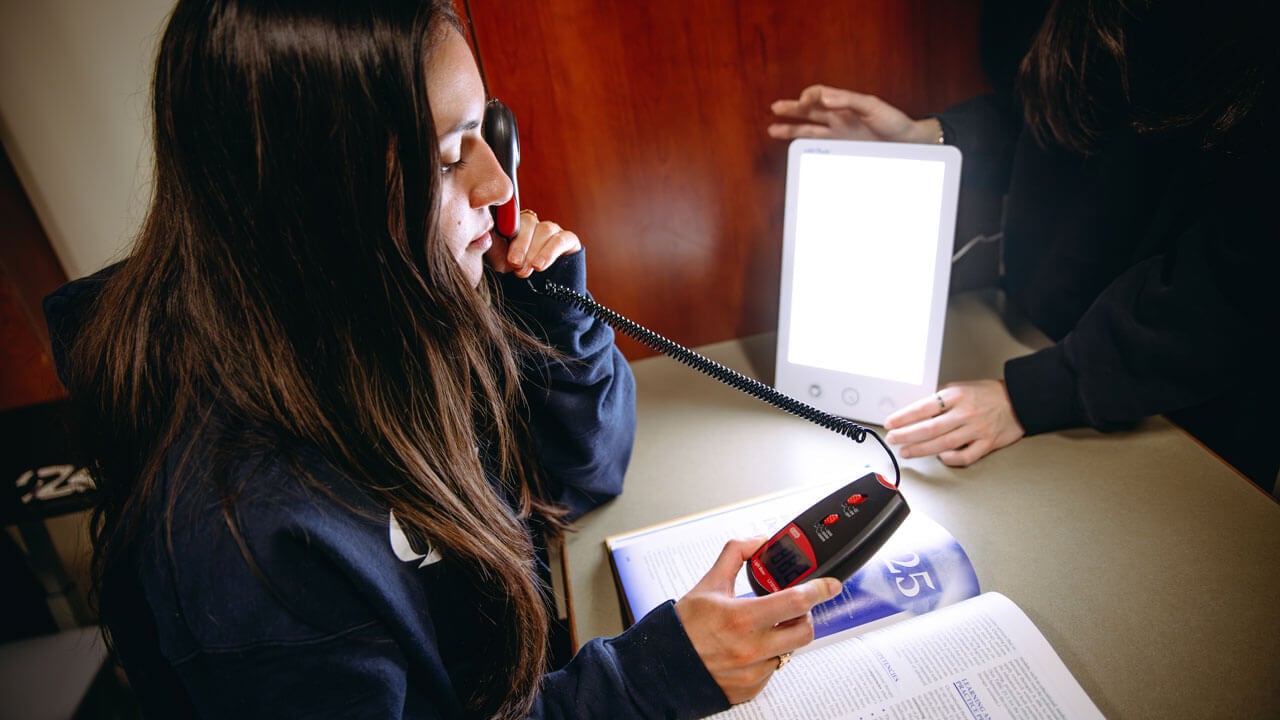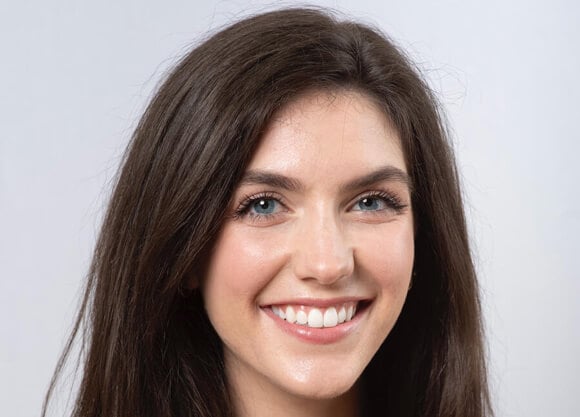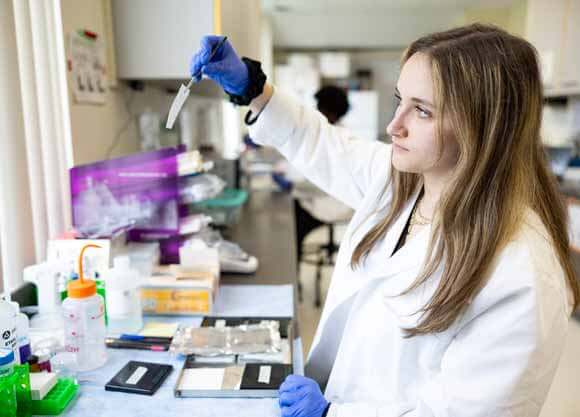
On April 8, Omar Dajani, a Palestinian-American law professor and a former member of the Palestine Liberation Organization's Negotiations Support Unit, and Mira Sucharov, a Canadian Jewish political science professor and university chair of teaching innovation at Carleton University, Canada, visited the Mount Carmel Campus to share their insights as part of Quinnipiac’s ongoing Critical Conversation Speaker Series. Claude Mayo, Quinnipiac’s director of the Office of Inclusive Excellence, moderated the discussion.
The series seeks to foster an inclusive and intellectually stimulating environment at Quinnipiac, by promoting inclusivity of thought, respectful dialogue, empathetic engagement and open-mindedness among students, faculty, and staff.
“These events are designed to empower participants to be better prepared to embrace inclusivity of thought by actively listening to and engaging with concepts and ideas that may challenge their personal realities without dismissing or silencing different viewpoints,” said Mayo.
As part of their effort to address and test assumptions on both sides of the Israel/Palestine crisis, Dajani and Sucharov are currently co-authoring a book and developing a podcast based on their past travels together to the region.
“We realized we would have to go there together,” said Sucharov, of their travels. “And we would have to go to a lot of the places we normally would go to, and see what would happen when we went to those same familiar places and talked to those same familiar people, with the other one beside us. And that created some surprises and some moments that we really needed to reflect on.”
Due to their past and work and publications as Middle East experts, the colleagues had already opened a dialogue in 2021, well before the devastating events of October 7, in an effort to recognize one another’s understanding of the history and issues as viewed through their personal lens.
“That’s radical empathy,” said Sucharov. “That’s trying to see the world through the eyes of others.”
Speaking at Quinnipiac, Dajani and Sucharov also shared details of some difficult conversations since October 7, in which they have sought to navigate across difference of personal feelings of hope and despair as shaded by their own identities and memories.
“As the months have gone forward, what we have found is that the really helpful way of grappling with difference in this context is by recognizing that each of us enters the moment, each of us regards a news story, with an impulse; and trying to unpack what is going on,” said Dajani “To what extent is this about our respective perspectives about legacy media? To what extent is this about being a woman and a man? To what extent is this about being a Jew and a Palestinian? To what extent is it more from experience of having your story misrepresented or erased through the years? To what extent does inattention to antisemitism issues in the context of politics factor in? There are so many pieces to this. For us, when we get really exorcised; trying to disentangle is so helpful.”
Mayo also asked Dajani and Sucharov where they find hope, especially in the face of the current crisis. Sucharov explained how, at the same time she had first reached out to Danjani a few years back, she founded an organization on Facebook in an effort to create community across difference. She named the organization after the Hebrew word meaning “ways” or “paths.”
“I was deeply troubled by what was going on in Gaza at the time; deeply troubled by the binary and feeling like I didn’t have a place,” she said.
Sucharov said the group was established as one specifically for those Jews who feel a true attachment to Israel, but who also believe in Palestinian solidarity principles such as an end to occupation, and the Palestinian right of refugee return, and alternatives which explore options for solutions beyond the parameters of the historic “two-state solution.”
“It’s really about nurturing and elevating both people,” Sucharov said. “It was a vision for a way of being in community and in solidarity. It had about 500 members before October 7, and now, it’s doubled since October 7. So that gives me hope - when so many people are pulling apart and are pessimistic, understandably, but also cynical - about possibilities for fair peace and justice. I’m feeling grateful for this little corner of community.”
Dajani added both he and Sucharov are involved in a movement that has been, for him, a source of a lot of hope because it articulates a different vision for the future.
The movement, “A Land for All” (previously “Two States, One Homeland”) comprises Israeli Jews, Palestinian citizens of Israel, and Palestinians. It proposes a two-state confederation as the solution to the Israel-Palestine conflict, with some pivotal departures from the long-held, traditional characteristics of the two-state solution.
“We understand this land is cherished by Palestinians and Jews alike, and accordingly what we advocate for is gradual steps for freedom of movement across that land and later, freedom of residence across that land, for both Palestinians and Jews,” said Dajani.
Under these guidelines, a Palestinian refugee could become a citizen of the state of Palestine but live as a permanent resident of the state of Israel; and an Israeli settler could become a permanent resident of the state of Palestine while remaining a citizen of the state of Israel.
“This framework provides answers to some of the really difficult questions that have been impediments to achieving a negotiated solution in the past; and we think it also honors the attachment of Palestinians and Israelis to their home place,” said Dajani.
The movement, in existence for about a decade, recently took steps to organize and constituted a board populated by Palestinians and Israeli Jews in September 2023. The first board meeting was held on October 10.
“You could imagine what that could have been in that moment,” said Dajani. “And what it was, was extraordinary, with folks expressing solidarity and sympathy rather than anger and contempt for each other. And I think the reason is that while none of us is naïve enough to imagine that this reality, that this vision that we want to see realized, will be implemented overnight; we all think that if you can articulate a vision that is responsive to our respective needs and aspirations, and try to reverse engineer from there, it’s possible to build a movement that can withstand even shocks of the kind we’ve experienced over these last horrific six months.”
In this Article
Stay in the Loop
Quinnipiac Today is your source for what's happening throughout #BobcatNation. Sign up for our weekly email newsletter to be among the first to know about news, events and members of our Bobcat family who are making a positive difference in our world.
Sign Up Now